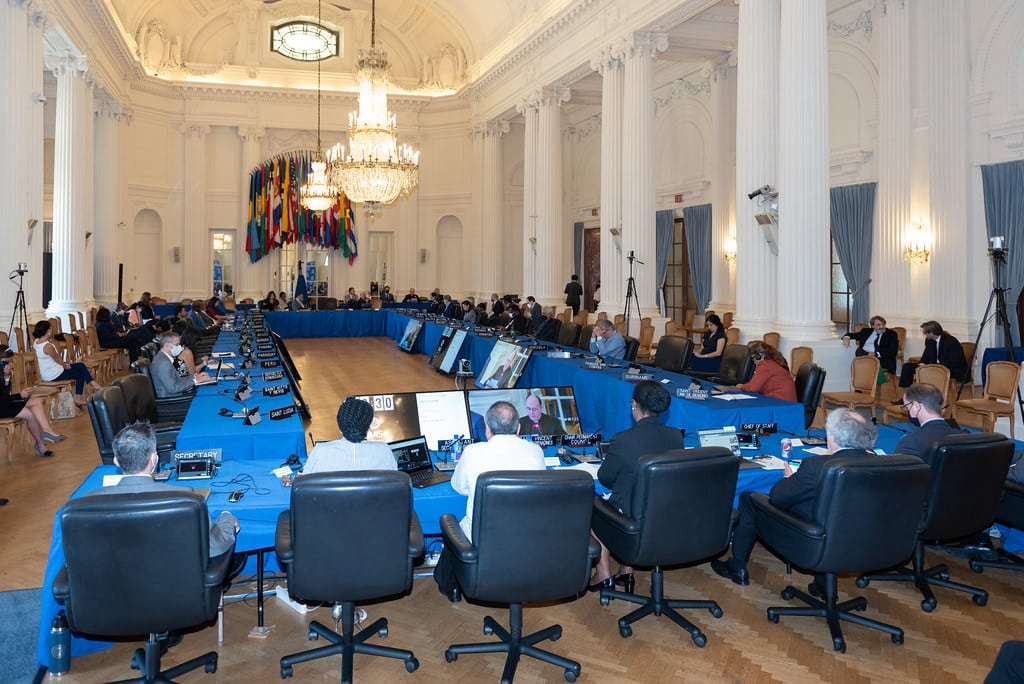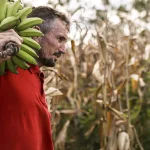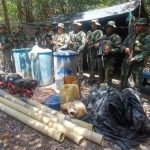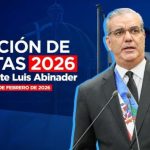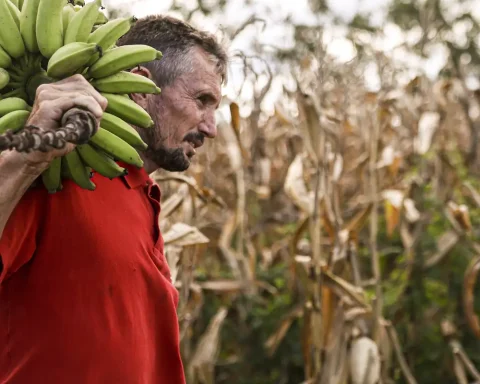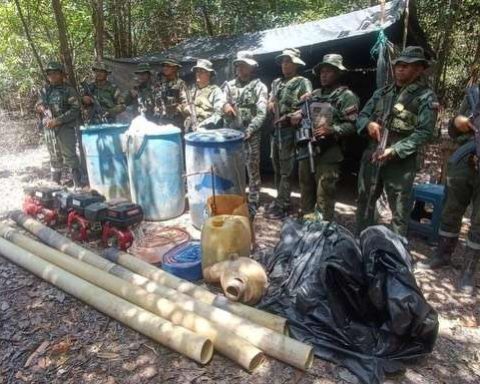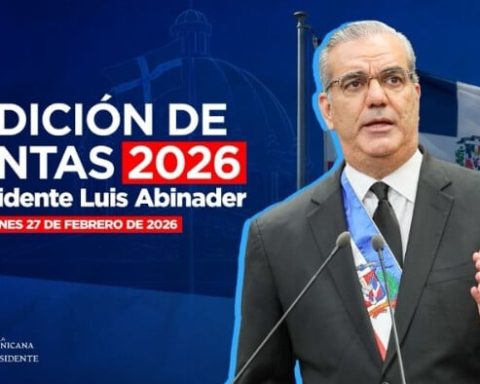The Nicaraguan dictatorship clings to repression and impunity in its hours of greatest regional isolation, after 27 countries of the Organization of American States (OAS) they demanded on Friday, August 12, the freedom of 190 political prisoners and the cessation of the ongoing persecution from the Executive against the Catholic Church and the independent media.
In the regional vote, only the island of Saint Vincent and the Grenadines opposed it, four countries abstained—El Salvador, Honduras, Bolivia and Mexico—, and two were absent—Nicaragua itself and Colombia—.
According to the OAS record, on the 13 occasions that the situation in Nicaragua has been evaluated, from the June 5, 2018 when 34 votes were obtained, this resolution is the second with more regional support. In the last four years, the body has spoken out not only condemning the repression, but also declaring illegitimate the votes of last November, through which Ortega prolonged himself in power in a process without democratic guarantees.
The 27 countries resolved this Friday to “strongly” condemn the closure of more than 1,400 non-governmental organizations carried out en masse by the National Assembly since last January, as well as the harassment and arbitrary restrictions of religious organizations. One of the most high-profile cases was the expulsion last July of 18 missionaries of the Mother Teresa of Calcutta order.
However, while these events were mentioned in the OAS session as a cause for concern by the organization’s representatives, Ortega continued his persecution of the Catholic Church, whose leaders he accuses without evidence of plotting to overthrow him.
The Police have kidnapped the Bishop of Matagalpa Rolando Álvarez and ten collaborators in the Episcopal Curia since last August 4 and yesterday the authorities prohibited a procession in honor of the Virgin of Fatima in Managua, alleging reasons of “internal security”, in the midst of a hostile climate against the religious that has put two in jail last June and July.
Daniel Zovatto, regional director for Latin America and the Caribbean of the Institute for Democracy and Electoral Assistance (IDEA), angrily asked on his Twitter account “what is the limit of these murderous dictators”, referring to Ortega and his wife, the Vice President Rosario Murillo, after learning of the decision to suspend religious activity. “How far will we let them go?” he questioned, and appealed directly to the OAS Secretary General, Luis Almagro.
What will be the limit of these murderous dictators? How far will we let them go? Until where @Almagro_OEA2015How far presidents and ministers of foreign affairs of AL and CA? How far US, EU and Canada? Until where? https://t.co/lS0sMhqofD
— Daniel Zovatto (@Zovatto55) August 12, 2022
For his part, the international analyst, Jorge Castro, maintained that Ortega—in power since 2007—does not have a policy in international terms, but rather defines himself in terms of how long he lasts longer in the exercise of political power.
Castro maintains that there is no possibility of hiding the campaign of systematic persecution, orchestrated by the executive branch against a large part of civil society, beginning with the Catholic Church. The academic cited the case of the Bishop of Matagalpa and administrator of the Diocese of Estelí, Rolando Álvarez, and explained that Nicaragua faces a situation in which “the next step is international sanctions.”
The 27 OAS countries recalled in the same official document that the Nicaraguan regime must comply with its obligations established in the OAS Charter until its departure from the organization is effective on November 18, 2023, when two years of the denunciation of the constitution of the regional body.
An “axis” of countries that abstain
Former Foreign Minister of Guatemala Edgar Gutiérrez (2002-2004) considered that it is possible that a “new axis” is being formed over Nicaragua with the countries that abstained.
He stressed that Nayib Bukele’s El Salvador does not have the “left” credentials of the other voters. For Gutiérrez, Bukele sent a message with that vote to the Joe Biden Administration in the United States that “it is drifting authoritarian, even though it is not in any block.” Others, such as former Nicaraguan deputy Eliseo Núñez, observe in the Salvadoran’s attitude a contagious effect of Ortega’s dictatorial practices.
The former Guatemalan foreign minister explained that the government of Xiomara Castro, in Honduras, is reciprocal with Nicaragua, which supported them in the days of exile after the coup in 2009 against Manuel Zelaya, husband of the current president. But he stressed that he abstained.
The former Foreign Minister of Guatemala explained that the Colombian government of Gustavo Petro, who assumed power on Sunday, August 7, could have instructed his alternate representative in the OAS about the decision to be made in the case of Nicaragua, but it is possible that the decision to leave is due to the fact that he did not want to “take risks and not open flanks” on the eve of the negotiations with the National Liberation Army (ELN).
Former deputy Núñez added that the commitment that Petro can show on the issue of human rights is worrying, although others such as Jorge Castro affirmed that Colombia is in a process of political transition under the command of a leftist ruler who will have a difference in his foreign policy with respect to the United States and its predecessors.
Unlike Colombia, the Government of Gabriel Boric in Chile supported Nicaragua with a position critical of Ortega. Even his delegate mentioned the experience of the citizens of his country under the Pinochet dictatorship.
Núñez stressed that having 27 countries against Ortega reveals that not even the “Caribbean islands” support the Nicaraguan tyrant as happened in the past. “The regime bets that the international community does not use force in these cases and has chosen the immolation of the people of Nicaragua in exchange for staying in power, what it sells now is an economic bonanza, but it is with borrowed money. Once it is over, isolation and poverty will remain. Poor Nicaraguans are going to pay for it,” he added.
Ortega celebrates “triumph” in SICA
At the international level, although the dictatorship prolonged its international disrepute thanks to the continuity of its dictatorial practices, on the other hand, it scored a diplomatic triumph in Central America.
Ortega achieved the appointment of Werner Vargas as secretary general of the Central American Integration System (SICA), a position that had remained vacant since July 2021 after several proposals from Nicaragua, rejected at the time by the countries of the region.
The vote in favor of Vargas had the support of the Central American presidents, including Costa Rica’s Rodrigo Chaves. The Foreign Ministry of this country assured on August 10 in a statement that his decision is not “an accolade to Ortega”, given that they continue to maintain their critical position in the field of human rights.
According to Keys Administration, the election of Vargas will unlock 153 million dollars that required the signature of the general secretary of SICA. At least two former Costa Rican presidents, Laura Chichilla and Carlos Alvarado, rejected his position, while international law expert Carlos Murillo Zamora, from the University of Costa Rica, recalled that one of the pillars of Central American integration is democracy.
Active on his social networks, Zovatto also lamented the impunity in Nicaragua and affirmed that Ortega is convinced that he can do whatever he wants on his “private estate” and argued that the Central American Bank for Economic Integration (CABEI) continues to approve loans and Central American leaders supported their candidate as secretary general of SICA.
According to former deputy Núñez, Ortega’s celebration of the appointment of his candidate is directed above all at his political base, because it is clear of his international isolation. The regime said in a statement that the appointment of Nicaragua’s candidate, Werner Vargas, was “a triumph of peace.”
